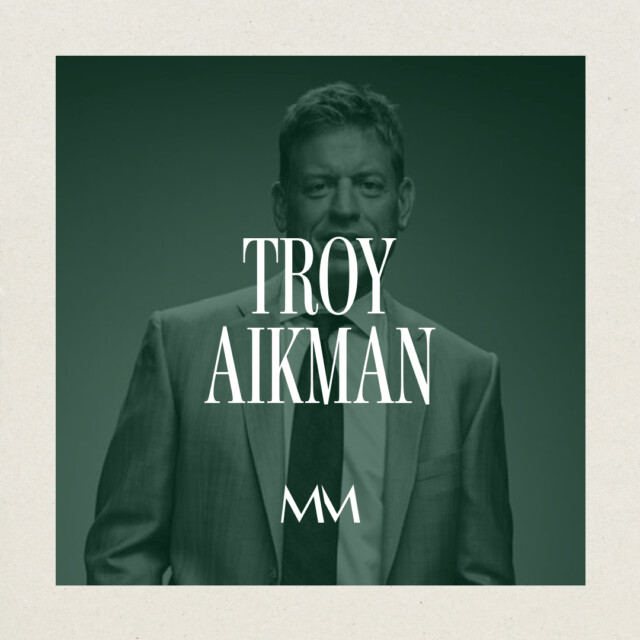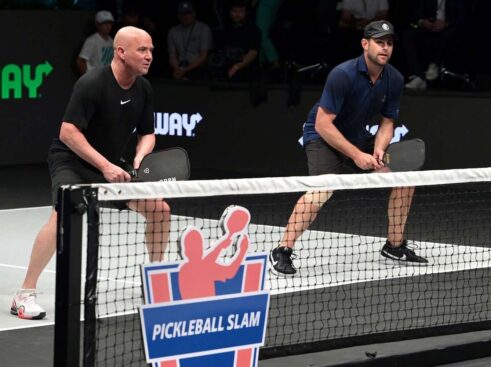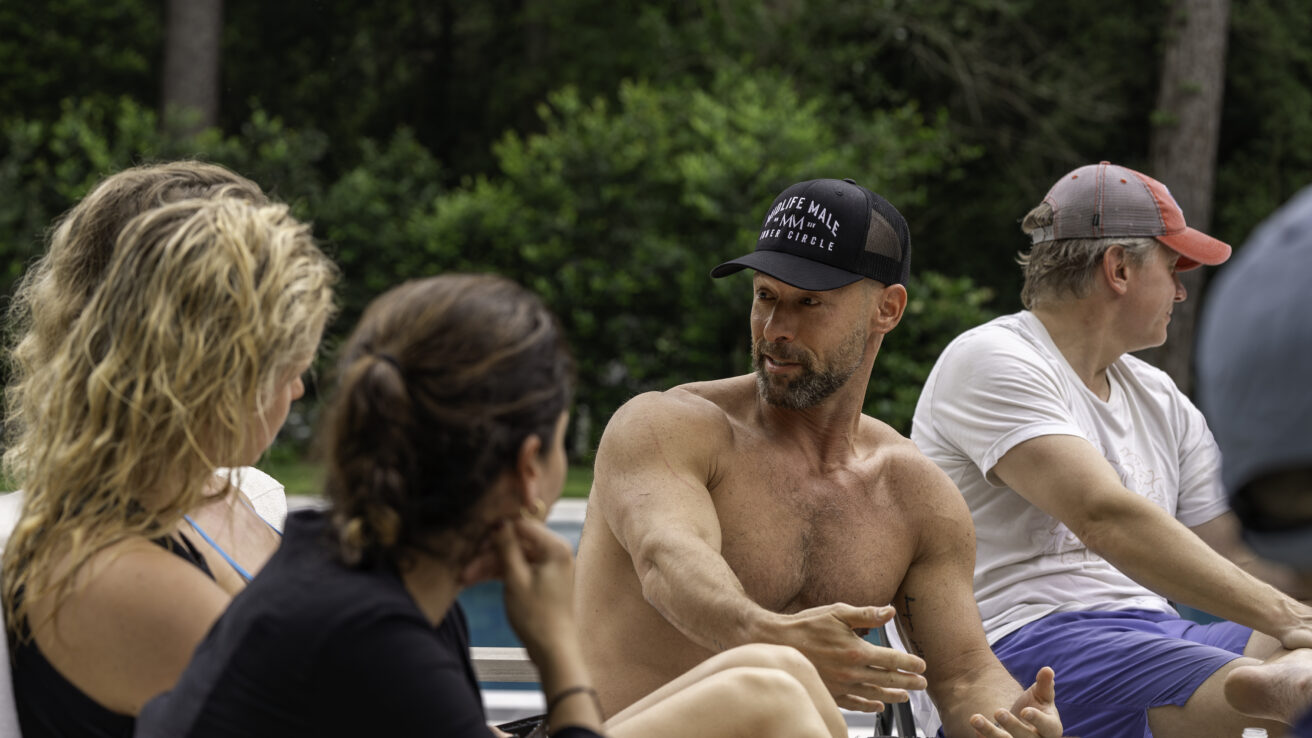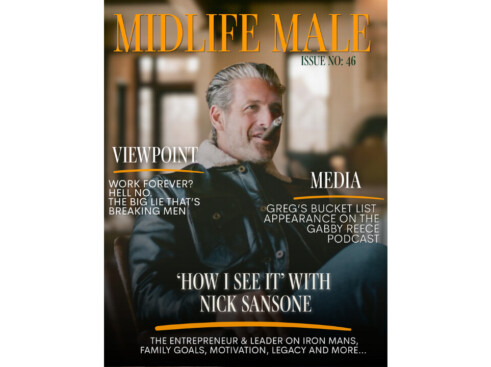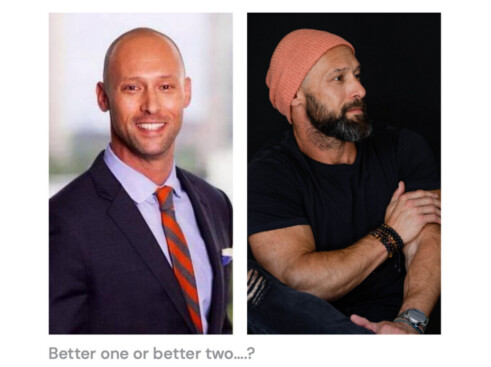I’ve come to a stark realization: Managing emotions and living with transparency and accountability are not just virtues, but necessities.
I didn’t just come to this realization – I was called out recently on all of it.
As tough as it is to admit that, admitting it is easier than practicing it.
Here’s what happened.
I invited a friend to join our inner circle group on one of our monthly calls as a guest speaker. He happens to be a bestselling author. I told him that I wanted to purchase a number of his books for the guys so that I could send copies to everyone. He agreed and said that he’d even sign them and send them.
He was awesome on the call.
Some time passed.
And this is where it started.
I sent him a text asking about the books.
He apologized and took responsibility for them not arriving, and that he’d get them to me.
Life happens, and the books still didn’t happen.
Wanting to be a good guy, I sent him this text back, essentially letting him off the hook.
That would’ve been fine and should’ve ended it.
But nope…
A few weeks later, I asked him about the books again.
And then a week or two after that I told him I was really pissed about not getting the books.
And then one more time, for good measure, I told him in no uncertain terms that I wasn’t going to ask about the books again and that I’m just really disappointed.
Only I had completely forgotten about my initial text telling him that it was no big deal.
And he called me out. For good reason. He went on to point out where I’d acted similarly in other instances. He was bringing a pattern of my behavior to my attention. He’s not wrong.
Instead of being angry, I was grateful.
The people that have the balls to call you out respectfully, honestly, truthfully and accurately are the ones you want in your life.
It’s forced me to take a good, hard, long look in the mirror, not for what’s on the surface, but to see my soul and my ethos underneath.
This week’s essay is a bit of a confession and a bit of a catharsis. It’s an acknowledgment of my struggles and an exploration of the challenges I face – and ones I think many men face in embodying these principles as well.
Why do I share this? Because I think it’s important to build in public – not just in business, but also in life.
How I do things is often not the right way. It results in a lot of mistakes, missteps, setbacks, pissing people off and anxiety.
But then you change one life. You get one thing right, and it makes it all worth it… right?
We want this to be true, to feel that, and live by it. But it’s not always the case. At least not for me.
The reason I spend so much time on optimization, maximization, self improvement, self awareness, self care, quitting this, starting that, talking to this person, writing about this issue or reading up on that topic is because I require all of it just to function.
Nine things can go right, one can go wrong, and I’m the guy fixated on that one thing. Now I’m actually fixated on being the guy who doesn’t fixate on the one thing.
One thing I’ve realized is that happy people don’t sit around all day talking about defining or redefining happiness.
Successful people don’t spend all their time talking about what success looks like and what it takes to be a success.
They just are.
And I don’t understand any of it. I’m wired differently. I think a lot of us are.
I was wrapping up my first quarter review. There are some pretty solid wins and a lot has been accomplished. There are some people I really need to thank, and I’ll do that personally.
-
We’ll have a brand new website, a complete redesign to reflect Midlife Male’s growth as a lifestyle brand helping more men maximize middle age.
-
We recorded 12 new podcasts with A-list guests including Troy Aikman, Suneel Gupta, Dr. Gabrielle Lyon, Gunnar Peterson, Don Saladino, Cameron Herold, Ali Webb, Michael Clinton and more. They’re dropping soon.
-
We launched our first Midlife Male Inner Circle group and have our first retreat coming up in Aspen in May with Chef Seamus Mullen and Big Thing Effect author Jeff Patterson joining us.
-
Kate, Harper and I visited Boulder, Nashville, New York, and Miami. I spoke at three events and one temple, this newsletter made it out on time every Sunday and Michigan finally won a National Championship.
Now, for every one of those milestones, there’s something I wish had gone better or differently. For the people I’m going to thank, there have been times I felt they could’ve been more committed, done it faster, done it better or done it how we discussed initially.
I hate feeling this way, yet I wake up feeling like this every day to some degree. It’s exhausting.
This brings me back to why I do the things you see me doing: exercising, saunas, cold plunges, taking on physical challenges, breathwork, meditation, walking, sleeping, reading, writing, speaking, and not drinking. This is what’s required for me to function.
It all takes time and reduces the amount of bandwidth I have to get the other stuff done. So then I stress about not getting enough done in my days, and it’s a vicious cycle that’s been going on for the first half of my life. I’m pretty confident it’s gonna stick around for the second half.
But I’m working on it.
Progress is a process, and we’re all “works in progress.”
You can’t “beat” these conditions, feelings, emotions or how you’re wired. Instead, you work on them. You learn how to manage them better, to lean in and accept the best parts of them.
One way I work on it is by writing, then sharing. And while I write to thousands of people, I really do it for the few of you who respond every Sunday.
Any of the things I outlined above may help you. All of them help me.
Some combination of any or all is usually the sweet spot.
It’s what I keep saying about the middle: It’s messy, but it’s also the sweet spot.
So, what’s helped the most?
Simply making better choices. The better choices I tend to make, the better my life tends to be, and the happier, healthier, and less stressed I am. Just make the better choice. More often than not, you already know what it is.
Focusing on emotional management: The importance of managing emotions cannot be overstated, particularly for someone like me, who has spent decades under the misconception that to be strong and not get hurt is success, and to be taken advantage of is to be unyielding. What I’ve come to learn is that recognizing and regulating my emotions is a sign of strength, not weakness. It requires courage to confront the discomfort of our feelings and the humility to accept them without judgment.
Not taking things personally: Oh boy… This is a lesson in detachment that I’ve found particularly hard to grasp. In business and personal life, criticism can feel like a direct hit to one’s self-esteem. I described it the other day to someone like this: “How you perceive yourself, how you want to be perceived by others and how others actually perceive you are not aligned… It feels like a kick in the dick.”
However, I’ve learned that the key to growth is the ability to view feedback objectively as a means of personal and professional development rather than an attack. This shift in perspective is liberating, but adopting this mindset is a continuous battle against one’s ego.
Transparency and accountability: Being transparent means shedding the veneer of perfection that we often feel compelled to uphold. It’s about being open about our faults and the decisions we make. I can tell myself all day that perfect is the enemy of good, and yet I keep clamoring for the perfect relationship, perfect workout, or perfect new website.
Closely tied to this is the concept of accountability, owning our actions and the repercussions. In my experience, this has been a transformative but challenging endeavor. It’s difficult to admit faults and easy to point fingers and pass the blame. Yet accountability has forced me to face the consequences of my actions, encouraging a deeper introspection and, ultimately, growth.
Acknowledging the difficulty in practicing what you preach: Here’s the deal: Speaking about these virtues is one thing, but living them is another entirely. My journey is riddled with setbacks and failures. Each day presents new challenges in the quest to live up to the ideals I put out there. The truth is preaching about emotional management, detachment, transparency, and accountability is simple. Practicing these principles, especially as a middle-aged man set in my old ways, is a test of character and resolve.
I’m a work in progress. The first 47 years of my life, I operated a certain way. Then I spent a few years trying to figure out a different way, because the way I was doing things clearly wasn’t working. Now, at 51, I feel like I’m in year one again and just getting revved up.
*
What I hope you take away from this is that it’s an invitation to other men navigating similar paths.
It’s a wake-up call to confront and own our shortcomings, to embrace the vulnerability that comes with confrontation, and to persist in the face of the inherent difficulties of setting standards and living up to them.
I hope we strive not just to preach but to actively practice these principles, understanding that there will always be challenges, situations and circumstances encountered that could derail us.
What I know is that my journey is ongoing, a constant struggle between who I am and who I strive to be. Yet, each step forward, no matter how small, is a win in the battle to be the man I wish to be.
Appreciate all of you out there.
